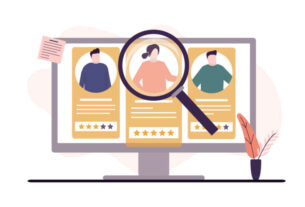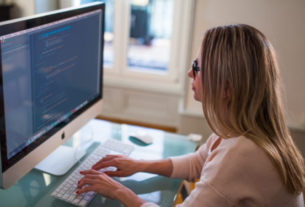Whether we like it or not, writers and bloggers are part of a community. And while we might write on totally different topics and espouse views from opposite sides of the fence, we all know that a writer’s life isn’t easy. That’s not just because creating fresh and engaging content requires tireless dedication and a range of skills that involve a lot more than ‘just’ writing; especially in the online world, some ideas or topics presented by authors might not be taken seriously or sit well with certain groups or individuals. Put differently, you’re likely left to your own devices and need to fend for yourself in more ways than one – including when it comes to digital security. Indeed, it may be a truism that the safety and security of our community and workplace, as well as that of our families and ourselves, should not be taken lightly. And since news and opinion circulates and is distributed mainly online now and at speed, there is a degree of internet security savviness that every blogger or news writer should aim for. On average, 30,000 websites are hacked a day , with a hack happening every 39 seconds . In 2021 alone, there were 22 billion breached records , and 95% of the successful breaches were due to human error or a person’s underestimating their cybersecurity needs. And while you might be forgiven for thinking that the bad guys would only be after prominent blogs (cue the hack of Google’s official blog years ago) and that such a thing cannot happen to a humble freelance blogger or writer, the reality is quite different . So, what can you do? Well, from one fellow blogger to another, there are certain ways to stay safe and protected. Here’s how. 1. Use secure login credentials Surprisingly, password security in today’s age is still lax, as people even now tend to use the same weak passwords that can be hacked in mere seconds; therefore, a healthy attitude toward passwords is a must. Consider using a longer passphrase or a fourteen-character-long varied password, at least. Better yet, use a password manager that can generate and securely store all your passwords . 2. Turn on two-factor authentication The best bet to increase the security of your page or logins is to add a second authentication layer to your account. Ideally, move beyond SMS authentication codes (they are increasingly under threat ) and use a verified app like Microsoft Authenticator, Google Authenticator or Authy, a dedicated CMS plugin or a platform to generate codes for better account security. 3. Set up a virtual private network (VPN) Most bloggers work from home or another external location (yes, cafes with good coffee do induce a creativity high), and connecting to public Wi-Fi networks can present a considerable security risk. There is rarely anything stopping a hacker from sitting down and using a “ sniffer ” program to monitor all data being sent and received on an open network. Anything […]
Click here to view original web page at www.welivesecurity.com




